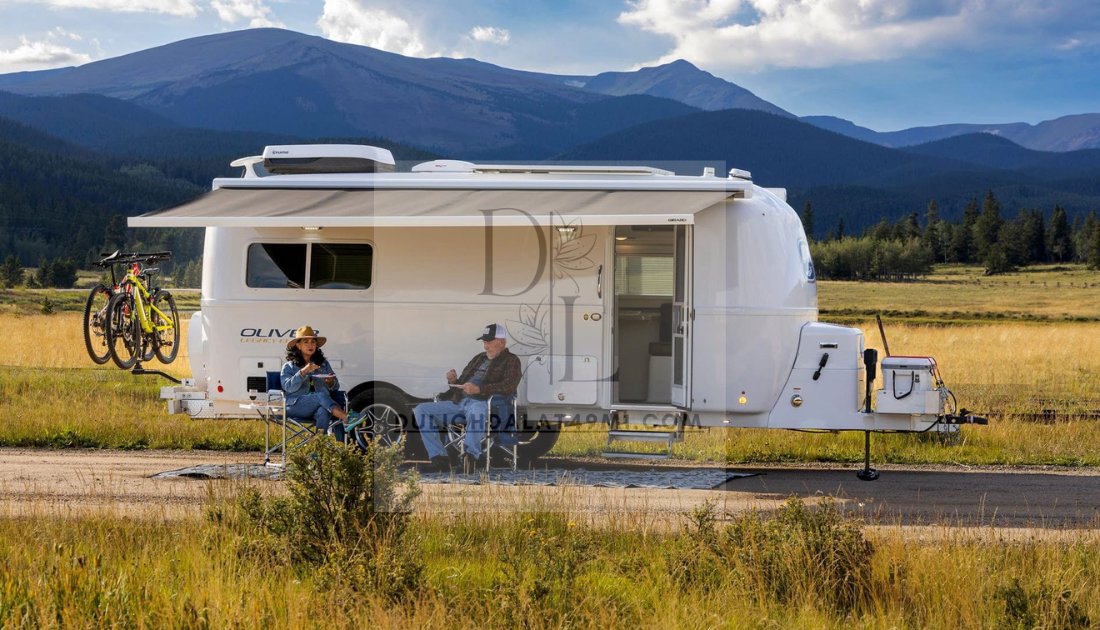When you hit the road with your travel trailer, you’re not just embarking on a journey — you’re investing in your adventure. However, just like with any significant investment, ensuring that your travel trailer is properly covered is essential. Travel trailer insurance helps protect your valuable asset against various risks, such as accidents, theft, and natural disasters. But navigating through the options and understanding the policies can be daunting. In this guide, we’ll break down everything you need to know about travel trailer insurance, including its types, benefits, and tips for choosing the best coverage for your needs.
What Is Travel Trailer Insurance?
Travel trailer insurance is a specialized type of policy designed to protect owners of travel trailers, campers, and motorhomes. It works similarly to car insurance but with unique coverage options tailored to the specific needs of RV owners. Whether you’re heading to a national park for a weekend getaway or setting off on a cross-country road trip, travel trailer insurance can provide financial protection in case of accidents, theft, damage, or liability issues.
Why Do You Need Travel Trailer Insurance?
Many RV owners assume their car insurance will cover their travel trailer, but that’s not the case. Regular auto insurance typically does not provide sufficient coverage for trailers or campers. That’s where travel trailer insurance comes in. Here are some key reasons why you should invest in this type of insurance:
- Protection Against Accidents: Accidents can happen at any time, whether you’re towing your trailer or parked in a campground. Travel trailer insurance can help cover the costs of repairs or replacement if you’re involved in a collision.
- Coverage for Theft and Vandalism: Travel trailers are a prime target for theft, especially when left in remote areas. Insurance can reimburse you if your trailer is stolen or vandalized.
- Liability Protection: If you’re at fault for an accident that causes damage to another vehicle or property, liability coverage can help pay for repairs or medical expenses, saving you from costly legal battles.
- Natural Disaster Coverage: Travel trailers are vulnerable to extreme weather conditions, including hail, floods, and high winds. With comprehensive coverage, you can be reimbursed for damages caused by natural disasters.
- Peace of Mind: Knowing that your trailer is insured gives you the confidence to travel freely without worrying about unforeseen circumstances that might arise along the way.
Types of Travel Trailer Insurance
When shopping for travel trailer insurance, it’s important to understand the different types of coverage available. Here are the most common options:
- Liability Coverage: This is the most basic form of insurance, required by law in many states. It covers bodily injury or property damage to others in the event of an accident where you’re at fault.
- Collision Coverage: This type of coverage helps pay for repairs to your travel trailer if it’s damaged in a collision, regardless of fault.
- Comprehensive Coverage: Comprehensive insurance covers damage to your trailer that isn’t caused by a collision, such as theft, vandalism, fire, or falling trees.
- Personal Property Coverage: This provides coverage for the contents inside your trailer, such as electronics, furniture, and clothing, if they are damaged, lost, or stolen.
- Uninsured/Underinsured Motorist Coverage: If you’re involved in an accident with another driver who doesn’t have enough insurance or any insurance at all, this coverage helps cover the costs.
- Emergency Expense Coverage: If your trailer is rendered unusable due to an accident, this coverage can help with expenses like lodging and food while your trailer is being repaired.
- Full-Time RV Insurance: If you’re living in your travel trailer full-time, you may need specialized insurance that provides additional coverage for personal property and living expenses.
How Much Does Travel Trailer Insurance Cost?
The cost of travel trailer insurance varies depending on several factors. These include the value of the trailer, your driving history, the type of coverage you choose, and the location where you park your trailer. On average, you can expect to pay between $150 and $500 per year for basic coverage. However, if you opt for higher coverage limits or additional options like comprehensive coverage, the price may increase.
One of the most important things to remember is that cheaper isn’t always better. It’s essential to balance affordability with adequate protection, so you don’t find yourself underinsured in the event of a loss. Be sure to get quotes from multiple insurers to compare prices and coverage options.
Tips for Choosing
- Assess Your Coverage Needs: Consider how often you use your trailer, where you park it, and the level of risk you’re comfortable with. For instance, if you’re only using your travel trailer for occasional weekend trips, you may not need as much coverage as someone who lives full-time in their trailer.
- Check State Requirements: Different states have different insurance requirements for travel trailers. Make sure you meet the minimum coverage needed in your state.
- Consider Bundling Policies: If you already have auto or home insurance with a provider, consider bundling your travel trailer insurance with them. Many insurers offer discounts for multiple policies.
- Review Policy Exclusions: Carefully read your insurance policy to understand what’s covered and what isn’t. For example, some policies may exclude coverage for damage caused by neglect or lack of maintenance.
- Ask About Roadside Assistance: Many travel trailer insurance policies offer roadside assistance as an add-on. This service can be invaluable if you break down or need help while on the road.
- Maintain Your Trailer: Insurance is not a replacement for regular maintenance. Keeping your travel trailer in good condition can reduce the likelihood of claims and lower your insurance premiums.
Common Travel Trailer Insurance Myths
There are several misconceptions about travel trailer insurance that can lead to confusion. Let’s address a few of the most common ones:
- Myth 1: “My car insurance covers my travel trailer.” As mentioned earlier, this is not true. You’ll need separate insurance for your trailer.
- Myth 2: “I don’t need insurance if I’m not towing my trailer.” Even when your trailer is parked, it can still be damaged by fire, vandalism, or natural disasters. Comprehensive coverage can protect you in these situations.
- Myth 3: “Full-time RV insurance is too expensive.” While full-time coverage can cost more, it’s not prohibitively expensive for most people. It’s essential for those who live in their trailers and need more protection for personal property and liability.
Conclusion
Travel trailer insurance is a vital investment for anyone who owns a travel trailer or RV. It offers peace of mind, knowing that you have financial protection if something goes wrong on your journey. Whether you’re looking for basic liability coverage or more comprehensive protection, there are plenty of options to suit your needs. By understanding the types of coverage available and evaluating your unique situation, you can find the right insurance to keep your adventures safe and stress-free. Before purchasing, be sure to compare quotes, read the fine print, and ask your insurer about any additional options, such as roadside assistance, to enhance your coverage.
In short, don’t leave your travel trailer vulnerable to the unexpected. Protect your investment, so you can focus on enjoying the open road.

